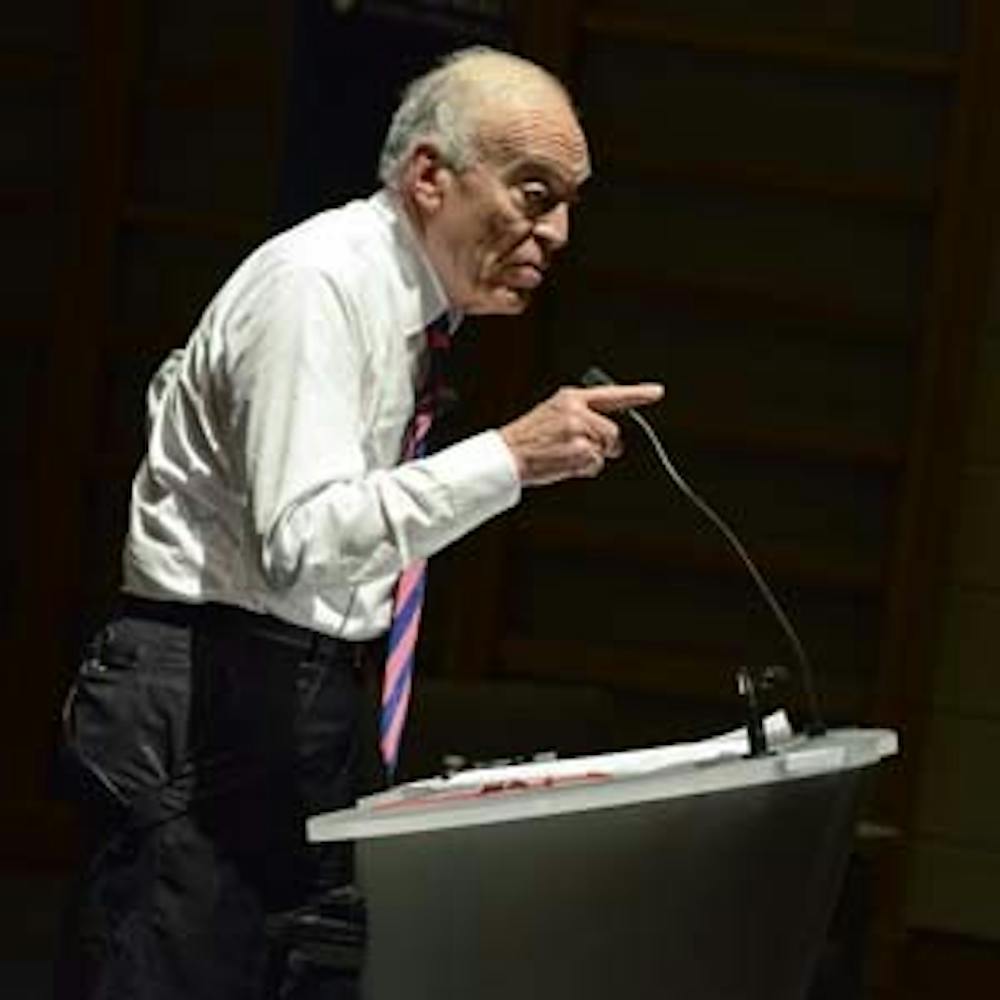Leonard Lauder, chair emeritus of the $10 billion cosmetics company Estée Lauder, shared his wisdom on how to make it in the business world to suit-clad students in Huntsman Hall Thursday afternoon.
Lauder’s parents, Estée and Joseph, are co-founders of the well-known multinational beauty and makeup company.
The former chief executive and 1954 Wharton graduate got right to business after a few brief jokes and an introduction by Jerry Wind — a Board of Governors member of the Lauder Institute, which hosted the event.
“I’m trying to pour 60 years of experience into 25 minutes,” Lauder said. In his talk, Lauder’s principal focus was advice for entrepreneurs. During his time at Wharton, Lauder said most students were interested in either consulting or Wall Street.
“Entrepreneurship is probably the driving force behind many people in [this] room,” he said, noting the differences in the current business generation.
Lauder’s first advice was to trust one’s instinct. The speaker recalled how his parents’ advisors tried to caution them away from risk.
“Accountants and lawyers make good accountants and lawyers,” he said, but not necessarily successful entrepreneurs.
Lauder continued his talk for the roughly 200 students that sat in Huntsman Hall’s G06 Auditorium, emphasizing the importance of seeing opportunities in markets.
“The best you can do is be first to the market,” he said.
When Lauder’s parents founded Estée Lauder, Revlon was the biggest company in the market. The challenge was to find “an opening in the clouds,” where their new venture could thrive. The solution was to focus on distribution. Lauder emphasized that Estée Lauder’s success derived from a “focus on the area that other people were ignoring.”
“Don’t try to fight the big guys,” he said.
Second, Lauder stressed the importance of legal protection in a changing patent law landscape. In the current business world, “first to invent equals first to file,” he said.
“If you’re thinking about inventing something, keep quiet,” Lauder added, making a zipping motion near his mouth.
The business veteran discussed how decades ago, he envisioned the company to be “both multinational and multi-branded,” citing General Motors as influential to his vision for Estée Lauder.
Lauder shifted from his advice to reveal the tactics the company used to become multi-branded. Estée Lauder Companies Inc. now owns such brands as MAC Cosmetics and Bobbi Brown. Lauder’s strategy as chief executive of his family’s firm was to “put the companies [it owned] in competition against one another.”
The current chairman emeritus elaborated that, in 1968, his company created Clinique, a dermatology-driven brand that would compete with Estée Lauder’s established place in the beauty market. The idea was to create more competition to create more profit for the company.
The Lauder Institute also opened up the talk to questions from the student audience. One student asked what Lauder learned in his tenure as chief executive. “People don’t work for money,” Lauder said in response. “They work for recognition.”
Wharton sophomore Jenny Zhang remarked that the main takeaway of the event for her was to do what she loves as an entrepreneur.
“Being in Wharton, it’s easy to get swept up into the whole finance thing,” she said. “He was so inspiring to me.”



